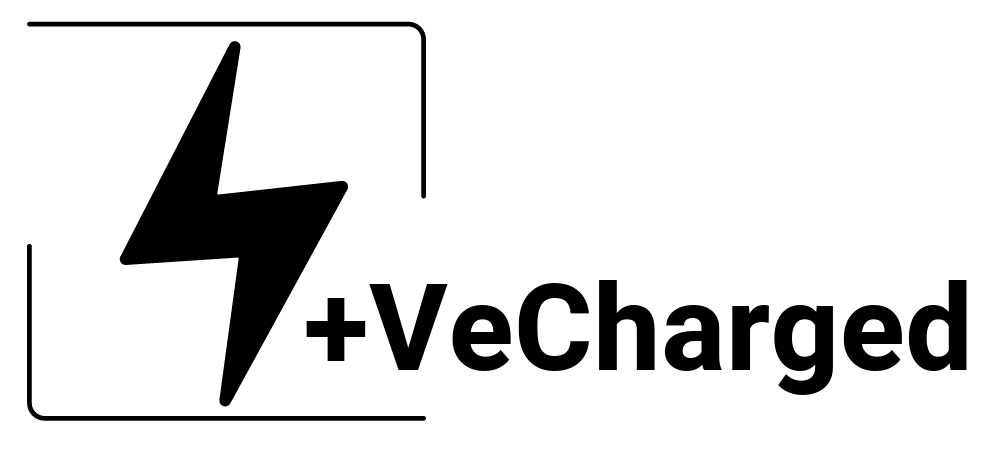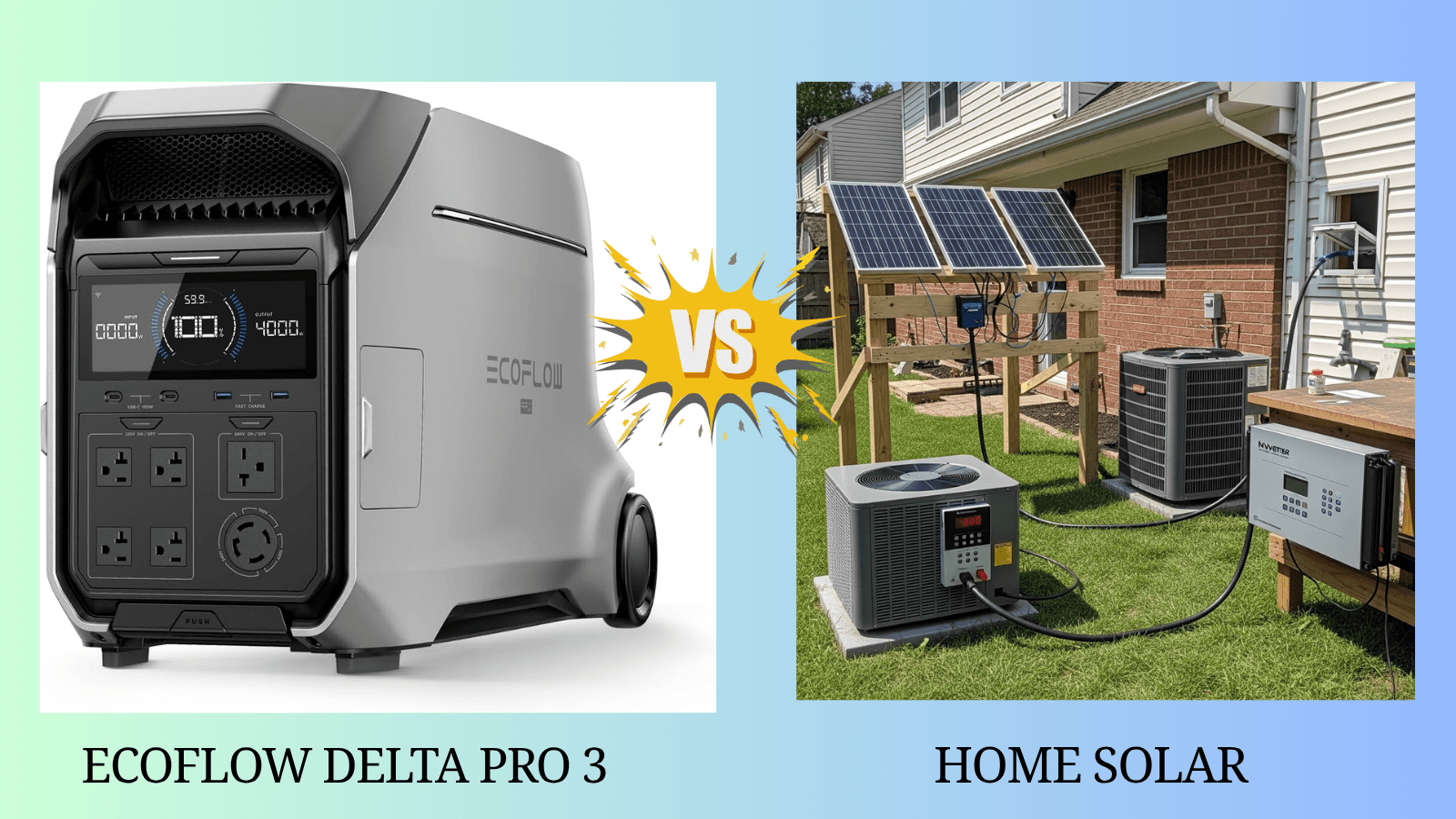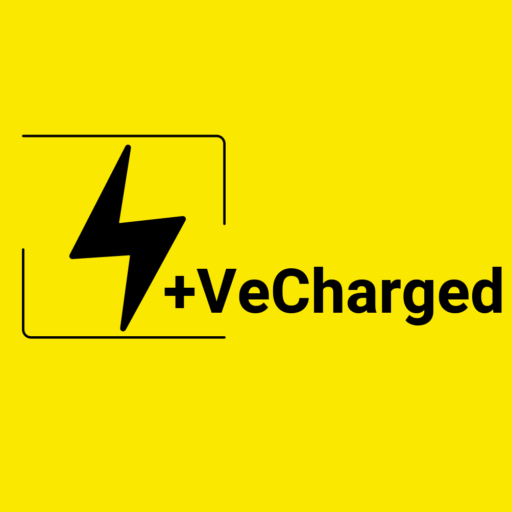The new Delta Pro 3 is a triumph of portable power engineering. We review its incredible capabilities and then ask the expert question: For stationary home backup, can you achieve true power independence for the same money?
In the rapidly escalating arms race of portable power stations, a few products stand out as true behemoths. The new EcoFlow Delta Pro 3 is one of them. With a staggering 4,000 watts of continuous output and a sleek, all-in-one design, it presents a compelling vision of the future: a single, powerful box that can run your entire life during a blackout.
Professional reviews from respected outlets like ZDNet and TechRadar have praised its ability to seamlessly power demanding appliances like refrigerators and even central A/C units, something previously unthinkable for a “portable” unit. It’s a plug-and-play powerhouse, a masterpiece of convenience engineering.
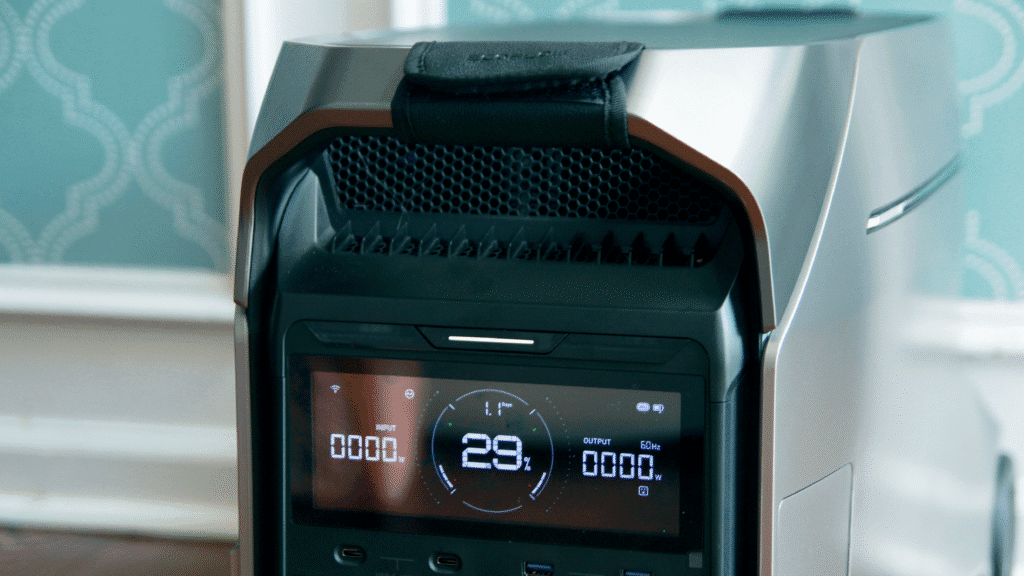
But as we celebrate this incredible technology, we must also ask the hard-nosed expert question: Are you paying a premium for portability you may not need?
For those of us who live and breathe off-grid systems, the Delta Pro 3’s price tag—often north of $3,000—begs a comparison. For the same investment, if your primary goal is robust home backup rather than road-tripping, could you build a stationary system that offers even more power and flexibility?
This is the ultimate showdown: the pinnacle of portable convenience versus the raw power of a custom-built system.
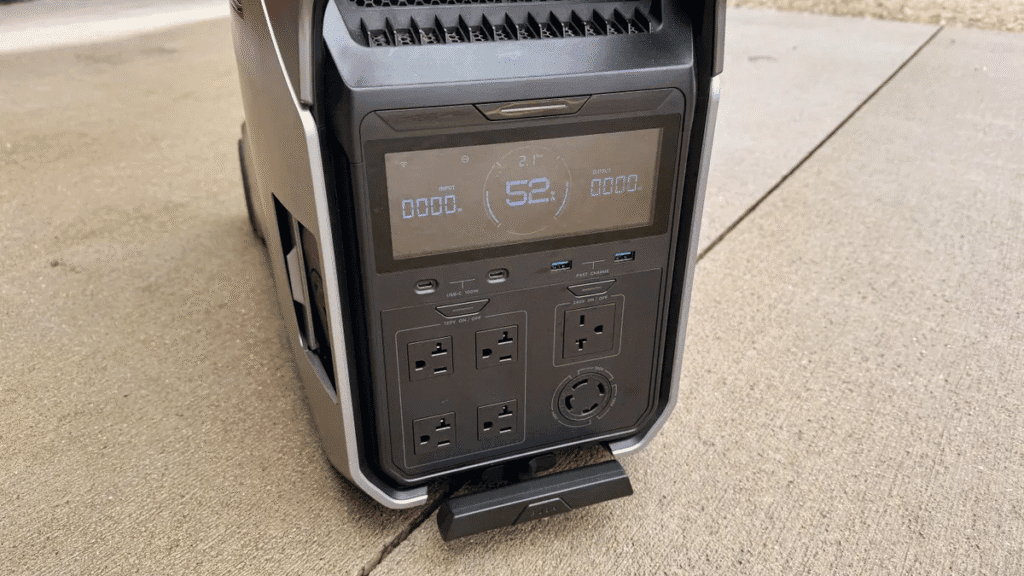
The Review: Why the EcoFlow Delta Pro 3 is a True Marvel
First, let’s give credit where it’s due. The Delta Pro 3 is a triumph. Based on official specs and hands-on reviews, its strengths are undeniable.
- Raw Power on Demand: With a 4,000W continuous pure sine wave inverter and an “X-Boost” capability to push even higher, it can run nearly any household appliance without breaking a sweat. From microwaves to power tools, it just works.
- The LFP Advantage: It utilizes LiFePO4 (LFP) batteries, the gold standard for safety and longevity. This means thousands of charge cycles before any significant degradation, a massive improvement over older lithium-ion chemistries.
- A Connected Ecosystem: The EcoFlow app provides a slick, intuitive way to monitor and control the unit. Furthermore, it’s expandable. You can chain extra batteries to it, growing your energy storage as your needs and budget allow.
- Blazing Fast Charging: It can be recharged with astonishing speed from a standard wall outlet, an EV charging station, or a massive solar array, making it incredibly versatile.
Even on community forums like Reddit, new owners are consistently impressed, often describing its capability as “something else” right out of the box. For anyone who needs massive power on the go—for RVs, mobile businesses, or multi-day camping trips—the Delta Pro 3 is arguably the best all-in-one solution money can buy.

The Expert’s Dilemma: The Price of Portability
Here is where the conversation pivots. That beautifully designed, wheeled box contains three key components: a battery, an inverter, and a charge controller. By packaging them together, you gain immense convenience but pay a premium for that integration and portability.
If your “portable” power station spends 99% of its life sitting in your garage waiting for a blackout, you’re essentially paying for wheels you never use.
So, what if we took the same budget and “unboxed” the components?
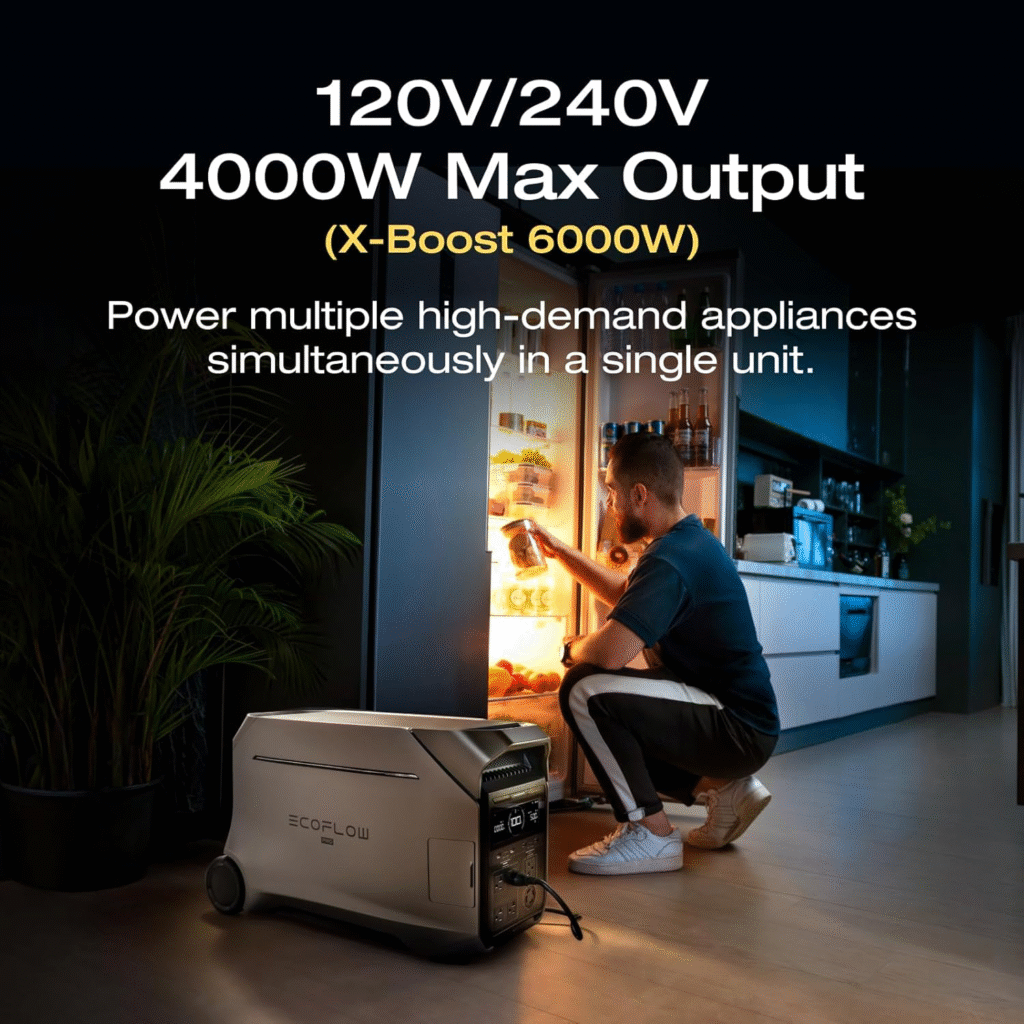
The Alternative: Building Your Own Stationary Powerhouse
For the same price as a single Delta Pro 3, you can purchase the individual components for a stationary system that, while not portable, is significantly more powerful in key areas.
Here’s a sample component list for a comparable budget:
- A 48V Hybrid Inverter/Charger (5000W+): Brands like Growatt or Victron offer all-in-one units that can handle more continuous power than the Delta Pro 3 and are designed for 24/7 operation.
- A 48V “Server Rack” LiFePO4 Battery (5kWh+): These are the workhorses of the home solar world. A single 5kWh server rack battery offers more base storage than the Delta Pro 3’s 3.6kWh and is designed for deep, daily cycling for a decade or more.
- Solar Panels: With the money saved on the integrated system, you can often afford a much larger solar array (e.g., 1000W-2000W) to recharge your system faster.

The Showdown: EcoFlow Delta Pro 3 vs. A Custom Build
| Feature | EcoFlow Delta Pro 3 | Custom Stationary System | The Expert Take |
| Power Output | 4000W Continuous | 5000W+ Continuous | A custom system can run more demanding appliances, like a central A/C, with a higher-rated inverter for the same price. |
| Base Capacity | 3.6 kWh (Expandable) | 5.0 kWh+ | You start with more energy storage, meaning longer runtimes for essential appliances during an outage. |
| Portability | Excellent (Wheels & Handle) | None | This is the Delta Pro 3’s biggest advantage. If you need to move your power, it’s the undisputed winner. |
| Ease of Use | Unbeatable (Plug & Play) | Requires Installation & Knowledge | The EcoFlow is designed for absolute beginners. A custom system requires basic setup and wiring. |
| Solar Input | Very Good (Up to 1600W) | Excellent (Can handle 4000W+) | A custom system can take full advantage of a large rooftop solar array for incredibly fast recharging. |
| The Bottom Line | You pay a premium for a beautifully engineered, all-in-one portable solution. | You get more raw power, more storage, and faster solar charging for your money, but it stays in one place. |
The Power Blueprint Architect
Tell us your budget and goals, and we’ll design the perfect power system for you.
Your Recommended System
Who Should Buy Which? Your Guide to True Power Independence
The choice isn’t about which system is “better,” but which system is right for you.
- You should buy the EcoFlow Delta Pro 3 if: You are an RV owner, a mobile professional, a contractor, or someone who values the absolute simplicity of a plug-and-play solution and needs the flexibility to take immense power anywhere. It is the king of convenient, portable energy.
- You should consider a custom system if: Your primary goal is home backup. If the unit will live in your basement or garage, a custom build will give you more power, more storage, and a more robust system for the same investment. It’s the path for those who want to run a well pump or central air conditioner during a multi-day outage, achieving a higher level of true energy independence.
Conclusion: Know Thyself, Know Thy Power
The EcoFlow Delta Pro 3 is a stunning piece of technology that rightfully deserves its praise. It has successfully packed the power of a home backup system into a box you can put in your car.
However, true expertise means knowing the right tool for the job. For the Vecharged reader who is serious about long-term power security for their home, it’s crucial to understand that you have options. By forgoing portability, you can unlock a new tier of power and capacity, transforming your investment from a “backup” device into the foundation of a truly resilient smart home.
References:
Android Police: “This 4000W EcoFlow portable power station has your back during blackouts”
ZDNet: “This power station kept my fridge running… and just dropped by over $1000”
TechRadar: “EcoFlow DELTA Pro 3 portable power station review”
Electrek: “EcoFlow Phase 3 Prime Day sale…”
Reddit r/Ecoflow_community: “New owner Eco flow delta pro 3…”
Amazon.com: EF ECOFLOW Delta Pro 3 Product Page
